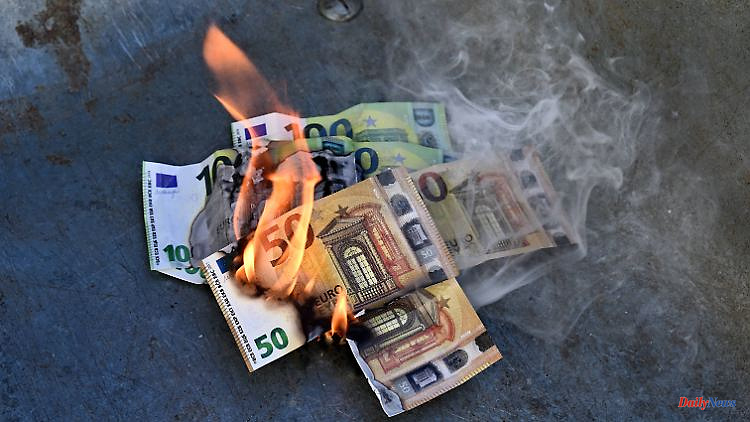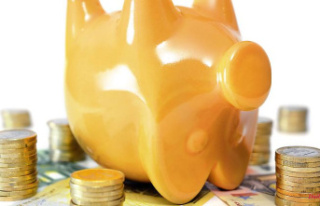Inflation rates are currently coming back and the stock markets are "celebrating" with rising prices. However, high inflation rates could continue for the time being. The central banks are in a quandary.
There is currently a good mood among stockbrokers. In your opinion, the fight against inflation by the central banks seems to have been successful and the nightmare will then come to an end in the foreseeable future. The slight increase in the inflation rate in January in Germany was due to special effects that will not be repeated in the same way - above all the assumption of the advance payments for gas and district heating in December by the federal government. And finally, the Fed, ECB and Co. recently raised their key interest rates again by half a percentage point. When has there ever been such a hard monetary policy historically?
Equity investors are now expecting - or rather speculating - that the rigorous rate hikes will soon come to an end. And the first rate cuts could come at the end of the year. Because economic development is likely to be weaker in both the USA and the euro zone - even if the markets are no longer expecting a recession.
However, inflation rates are currently falling mainly because the strong inflation drivers of the past - energy and the supply chains disrupted by Corona - are gradually dissolving. In the case of oil and gas, it is the base effects that work against inflation. Brent oil, for example, ranged from around $80 to just over $122 a barrel last year. A barrel is currently trading at around $85. Although this is still anything but cheap, it is still around ten percent cheaper than the price a year ago.
So not only is oil currently not having an inflationary effect, it is even having a slightly deflationary one. This could intensify in the coming months. Because oil became more and more expensive last year until mid-June. If the price of oil stagnates or even falls further, the gap to the higher prices from the previous year would increase and with it the "anti-inflation effect". The situation in supply chains is also easing after China has started to restart its economy. Both developments and the resulting pressure on inflation rates are not attributable to the central banks and their tightened interest rate policy.
Actually, the question now is how high so-called second-round effects will be in the coming months. This means price increases that are based on previous cost increases. For example, groceries have become more expensive because energy has cost more. At the same time, demands for wage increases in the double-digit percentage range do not bode well.
The inflation that takes root in this way is much more difficult to fight and does not suggest that the central banks will reach their inflation target of around two percent in the foreseeable future. The two percent would probably only be in sight if energy became so cheap that it could overcompensate for the second-round effects described above. Due to China's economic recovery, however, it seems rather unlikely that the prices for oil, gas and coal will continue to fall noticeably. And even if they did, this would not be a success for the central banks and could work in the opposite direction at any time if energy costs rose again.
The central banks are faced with the difficult decision of whether they are really prepared to combat the second-round effects and the effects of inflation by raising wages and further raising interest rates. To do this, they would have to accept noticeable collateral damage in their already weak economies. Will the Fed, ECB and Co. actually slow down the probable recession by at least not cutting interest rates and a further shortage of liquidity? Fed Chair Jerome Powell and ECB President Christine Lagarde never tire of announcing exactly that.
Or will the currency watchdogs be satisfied with the successes that have apparently been achieved up to that point and accept a significantly higher inflation rate along the lines of: Wasn't it even higher before? So far, the central banks have had it easy when it comes to communication. Due to the unusually high inflation rates, almost all market participants have called for increases in key interest rates. That was easy and easy to justify and so far has hardly hurt anyone.
Now comes the hard part: inflation is falling, monetary policy appears to be having an effect and the pain in the real economy is starting to set in and growing by the month. Can interest rate increases or at least no reductions and further liquidity cuts be sustained and communicated in such a phase? The stock market traders will probably not see the "old days" again any time soon and will have to live with higher inflation.
In a scenario with a significantly higher inflation rate than the two percent targeted by the central banks, investors who have, for example, 25,000 euros in cash should generally invest more in productive assets - i.e. shares. In principle, this is possible via equity funds, which ideally are managed according to the criteria of sustainable investments. Risk management that actively controls the equity quota is very valuable in these volatile times.
About the author: Mark-Uwe Falkenhain has 30 years of professional experience in advising wealthy private and business clients. After various positions at major German and international banks, he has been a member of the board of Geneon Vermögensmanagement for twelve years.












